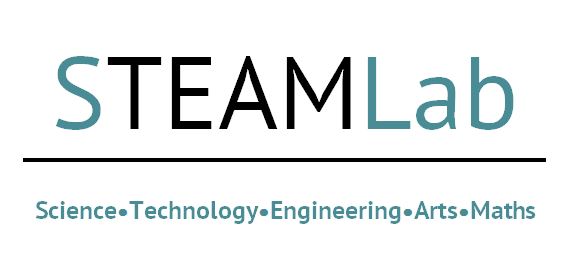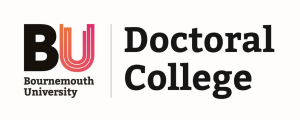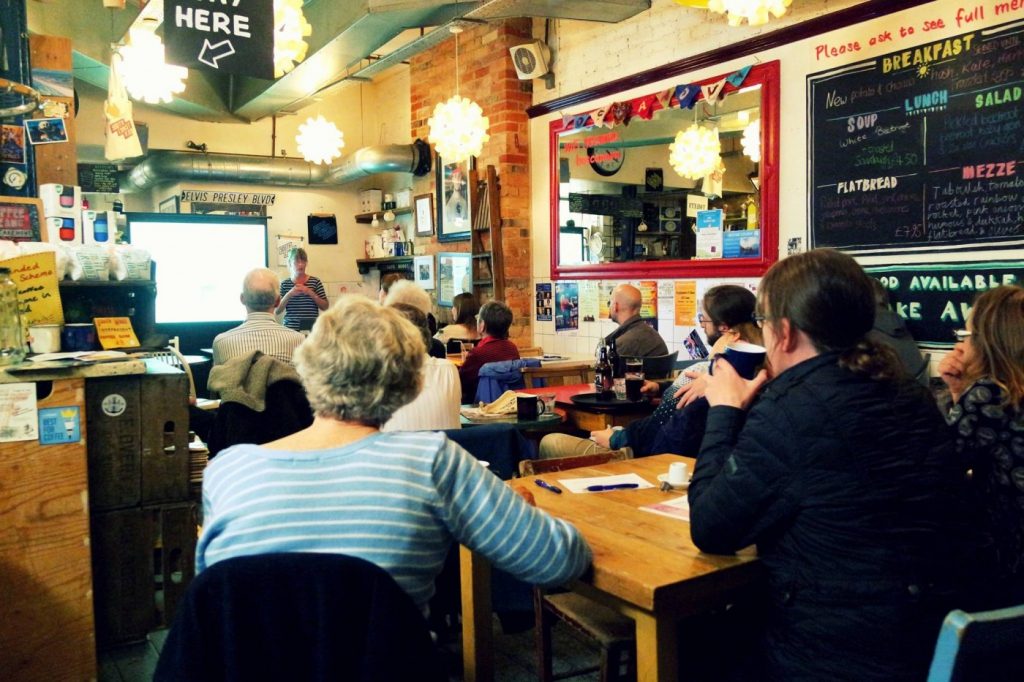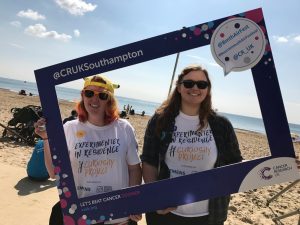Welcome to the first policy update of 2018! Parliament is in recess until Monday 8th so there has been less activity this week. Nevertheless, here is your slimline summary of the activity since our last update.
Office for Students
The Office for Students (OfS) officially came into existence this week. The final 6 members of the OfS board were announced
New members:
- Simon Levine is the Managing Partner and Co-Global Chief Executive Officer of the global law firm, DLA Piper. A graduate of Cambridge University, he is a Visiting Professor and Lecturer at Imperial College Business School.
- Elizabeth Fagan is Senior Vice President, Managing Director of Boots.
- Katja Hall is a partner at Chairman Mentors International, previously she was Group Head of External Affairs and Sustainability at HSBC where she was responsible for external communications, stakeholder engagement, social responsibility and community investment.
- Monisha Shah is Chair of Rose Bruford College of Theatre and Performance. She is also a serving Trustee of ArtFund, an independent fundraising charity for art. In December 2015, Monisha was invited by the Prime Minister to join the Committee on Standards in Public Life.
- Ruth Carlson is a current student at Surrey University, where she is a Student Ambassador for civil engineering. She has experience as a course representative, as a former president of the Surrey University Women’s Football Team and has also worked in other institutional and regional representative forums.
- Toby Young is the co-founder of the West London Free School, and now serves as the director the New Schools Network. His teaching experience includes working as a teaching fellow at Harvard and a teaching assistant at Cambridge. He is a Fulbright Commissioner.
This appointment has been contentious with both students and academics claiming he is unsuitable (BBC News: Toby Young regrets ‘politically incorrect’ comments). In another BBC article: University job backlash because I’m a Tory the DfE are reported to have spoken of the “vital insights Toby’s experience as the founder of a free school will bring to the role”. Furthermore: “This experience will be vital in encouraging new providers and ensuring more universities are working effectively with schools.”
Mr Young has also been criticised for past derogatory comments about working class students. In response to this complaint Toby claims the number of pupil premium children enrolled at the four schools he has established counters this criticism.
Sally Hunt, general secretary of the University and College Union, said: “If this organisation was to have any credibility it needed a robust board looking out for students’ interests. Instead we have this announcement sneaked out at New Year with Tory cheerleader Toby Young dressed up as the voice of teachers and no actual representation from staff or students.” [Note – there is student representation as Ruth Carlson has been appointed to the OfS board – see above.]
Twitter has been awash with complaints, including suggestions he is deleting thousands of inappropriate past tweets. LBC have critiqued the DfE for failing to provide a rationale response justifying why the inappropriate tweets were not considered a deterrent factor in Toby’s appointment.
Conservative Minister Margot James has also criticised the choice: “Toby Young is worthy of his appointment but it is a mistake for him to belittle sexist comments by labelling them ‘politically incorrect’, a term frequently used to dismiss unacceptable comments about, and behaviour towards, women and minorities.”
Toby has strong links with the Conservative party who are currently reported as experiencing a generation gap crisis due to the low number of young members they are attracting. Strong student opposition to Toby’s appointment may further damage the Conservatives’ reputation with younger voters further.
Click the link to read Toby Young’s statement: why I am qualified to be on board of new universities regulator
Previously announced members:
- Sir Michael Barber (Chair)
- Martin Coleman (Deputy Chair)
- Nicola Dandridge (CEO)
- Chris Millward (DfAP)
- Gurpreet Dehal
- Kate Lander
- Prof Carl Lygo
- David Palfreyman
- Prof Steve West.
League Tables
League tables often attract a collective groan within HE institutions because positioning is important but the criteria and methodologies change making interpretation difficult. On Thursday the Higher Education Policy Institute (HEPI) and the Higher Education Strategic Planners Association published A Guide to UK League Tables in HE. The report is a simple introduction for those who’d like to understand the limitations of league tables without getting bogged down in the complex terms and data.
Sally Turnball (author) said: League tables are both interesting and useful. But, as is the case in much of today’s knowledge society, we need to be able to navigate and understand this information effectively, so that it aids – rather than drives – what we do.
In summary, some difficulties are:
- Data is old – doesn’t present an accurate picture of a provider as it is today. This is exacerbated as league tables are used by pupils to make choices when they are 12-18 months away from enrolling – meaning by enrolment the institution was selected based on its performance 4 years ago.
- While the league tables collect and compare consistent data across institutions the HE sector is diverse so the data used often focuses on a narrow student population. Making it virtually meaningless for mature, part-time and postgraduate applicants.
- League tables use NSS data as a proxy to represent teaching quality – its an easily accessible data source but being opinion based its usefulness is limited because it’s not a robust or impartial evaluation of quality.
- Often providers cluster around the same scores so the rankers have to resort to decimal place levels to differentiate and allocate position on the league table – even though the differences are infinitesimal. Furthermore, changing the weighting of some criteria and excluding extreme scores – which is statistically sensible – results in exaggerated differences between provider scores and their resultant ranking position.
- Many of the valuable things done by institutions cannot be easily measured and are not incorporated into the rankings.
- Page 17 lists the metrics used to calculate the league tables, and pages 18 to 35 set out the problems associated with each metric in simple language.
The report concludes: League tables are not created for higher education providers to use as core management information. They are not based on thorough in-depth analyses of the datasets and they do not take many of the known contextual factors into account – for example, graduate employment data are not adjusted for local employment markets, despite differences in the profile of employment opportunities across the country. Yet league tables bring together a range of different sources of information about higher education providers to give a general overview of factors that prospective students might find useful when considering where to study. They provide information at both subject and institutional levels and they generate media coverage, putting areas of supposedly stronger and weaker provision in the spotlight. League tables are here to stay, and it would be ill-advised to ignore them. However, using them as the sole basis for policymaking or strategic decision-making is equally ill-advised.
Nick Hillman, Director of HEPI said: Universities are judged by their position in the league tables. Rankings determine reputation, prestige and student numbers. That is why university governing bodies hold their vice-chancellors to account for their league table positions. But users of the league tables tend to know little about how the rankings are put together. In other words, they do not know, precisely, what it is they are holding people to account for. The main league tables are not going to disappear any time soon because they provide comparative information and people find them useful. But they are easily and often misunderstood. My hope is that everyone who holds our universities to account will set themselves a new year’s resolution to look under the bonnet of the league tables before using them.
Free Speech
Jo Johnson spoke about free speech at the Jewish Limmud Festival on 26 December: “Our universities…should be places that open minds not close them, where ideas can be freely challenged and prejudices exposed. But in universities in America and increasingly in the United Kingdom, there are countervailing forces of censorship, where groups have sought to stifle those who do not agree with them in every way under the banner of “safe spaces” or “no-platforming”. However well-intentioned, the proliferation of such safe spaces, the rise of no-platforming, the removal of ‘offensive’ books from libraries and the drawing up of ever more extensive lists of banned “trigger” words are undermining the principle of free speech in our universities. Shield young people from controversial opinions, views that challenge their most profoundly held beliefs or simply make them uncomfortable, and you are on the slippery slope that ends up with a society less able to make scientific breakthroughs, to be innovative and to resist injustice.”
Of the OfS Johnson stated: “Promoting freedom of speech within the law will be at the heart of its [OfS’] approach to the regulation of our higher education system. The OfS will go further than its predecessor in promoting freedom of speech. …as a condition of registration with the new regulator, we are proposing that all universities benefitting from public money must demonstrate a clear commitment to free speech in their governance documents. I am pleased to say that this freedom is as important to the OfS’s new chairman, Sir Michael Barber, as it is to me. While he hoped the OfS never has to intervene in a university in relation to freedom of speech, he undertook that, if it does, it will be to widen it rather than restrict it. I’m confident freedom of speech in our universities has a bright future under the OfS. But we will continue to watch the system carefully.”
Finally Johnson reiterated: “And I want to be clear about this: attempts to silence opinions that one disagrees with have no place in the English university system. Academics and students alike must not allow a culture to take hold where silence is preferable to a dissenting voice. Universities cannot afford to be complacent about complying either with their duties to protect freedom of speech, or anything less than vigilant against hate speech (or other unlawful activity) masquerading as the exercise of the right to freedom of speech.”
On the following day Angela Rayner (Labour, Shadow Secretary of State for Education) said: “It is a false choice to suggest that universities are either places of free enquiry or places of safety. They can be both. Denying access to groups and individuals who incite violence and hatred is a perfectly sensible step to keep students safe from harm. The NUS have a ‘no-platform’ policy for a handful of racist, anti-Semitic and extremist organisations, some of which the Government itself has also banned. If Jo Johnson is opposed to that policy, he needs to be clear which of those groups he actually wants on campus.”
International Students
Leader of the Lib Dems, Vince Cable, is optimistic the PM will remove international students from the official immigration figures. He said: “…the Home Office has wildly exaggerated the number of those who overstay. This absurd policy has fuelled concerns over immigration numbers and done serious damage to our universities. We should be encouraging more students to come and spend their money in the UK, instead of needlessly hampering one of Britain’s most successful export industries.”
Theresa May has been vehement in continuing to count students within the net migration targets. Without fresh evidence it seemed unlikely the PM would change her stance, however, Politics Home has speculated May is likely to back down to avoid a vote defeat during the forthcoming Immigration Bill.
Meanwhile, the Migration Advisory Committee (MAC) continue their work to assess the social and economic impacts of international students studying within the UK. BU are currently preparing their response to the MAC call for evidence. Contact us at Policy if you’d like to contribute this this response.
Institutes of Technology fund
In December the Government announced a £170 million fund to establish Institutes of Technology delivering high level technical skills that meet employer needs. The Institutes of Technology will combine business, education and training providers within technical (particularly STEM) subjects to deliver the specific provision needed by local, regional and national employers. It forms part of the Government’s Industrial Strategy that will directly target skills gaps through upskilling existing and new entrants to the workforce. The first Institutes of Technology are expected to open in 2019.
Justine Greening said: “Institutes of technology will play a vital role driving our skills revolution with business and unlocking the potential of our country’s young people through better technical education. By bridging the country’s skills gaps, these new institutions will drive growth and widen opportunity.” “This Government continues to invest in developing our homegrown talent so British business has the skills it needs and so that young people can get the opportunities they want.”
Consultations
Click here to view the updated consultation tracker. Email us on policy@bournemouth.ac.uk if you’d like to contribute to any of the current consultations.
Other news
The year that was: HEPI review the major happenings of 2017 – a handy and brief refresh if you tuned out during the relentless sector debate and change last year. And Times Higher lists their 25 most popular articles of 2017 – the top spot went to the TEF results.
Research policy news: read our round up of the research news this week. And David Sweeney reflects on the change in mindset required to understand the approach to submissions in REF 2021.
Access to non-religious pastoral carers: Humanists UK published the results of their survey calling for non-religious support workers to be appointed to university chaplaincy and pastoral support teams. The survey sampling is limited in that it was only drawn from their student membership.
Industrial Strategy: The House of Lords has produced a library briefing on the Industrial Strategy and the UK Economy
Artificial Intelligence & Automation: The House of Commons Library has produced a briefing paper on Artificial Intelligence and Automation in the UK. Increasing digital skills, filling employment gaps, and funding for AI research are key issues for Government who seek to grow the AI industry. A sector deal for AI was announced in the Autumn 2017 Budget. This briefing paper considers the impact of AI and automation on the UK workforce, including how working lives may change. There are a broad range of predictions caveated by uncertainties such as the rate of technological development, rate of deployment, and the geographical variations. The paper concludes that the impact is likely to be significant and the Bank of England predicts that 15 million jobs will be influenced by automation over the next 20 years. You may also find the THE article from May 2017 Which countries and universities are leading on AI research interesting.
New(s) Year Resolutions?
Are your colleagues’ new year’s resolutions woefully inadequate? Supplement their diet and exercise plans by encouraging them to subscribe to the exceedingly palatable weekly policy update – simply email policy@bournemouth.ac.uk to be added to the list!
JANE FORSTER | SARAH CARTER
Policy Advisor Policy & Public Affairs Officer
66724 65070
Follow: @PolicyBU on Twitter | policy@bournemouth.ac.uk
 On Wednesday, 7th February 2018, BU’s Research and Knowledge Exchange Office will be facilitating a STEAMLab event on Global Challenges, attended by staff from the Royal Institute of International Affairs (Chatham House), Oxfam, Academics from throughout the M3 universities and other organisations.
On Wednesday, 7th February 2018, BU’s Research and Knowledge Exchange Office will be facilitating a STEAMLab event on Global Challenges, attended by staff from the Royal Institute of International Affairs (Chatham House), Oxfam, Academics from throughout the M3 universities and other organisations.


 The Physiological Society’s Public Engagement grants are open for their first round of 2018 applications.
The Physiological Society’s Public Engagement grants are open for their first round of 2018 applications. Vitae have brought to our attention these very podcasts which they have recently created with the Taylor Francis Group – please click
Vitae have brought to our attention these very podcasts which they have recently created with the Taylor Francis Group – please click  As part of the
As part of the 








 e and Impact Team, we have a lot of experience in finding the right audience to invite to a public engagement event.
e and Impact Team, we have a lot of experience in finding the right audience to invite to a public engagement event. 













 3C Event: Research Culture, Community & Can you Guess Who? Friday 20 March 1-2pm
3C Event: Research Culture, Community & Can you Guess Who? Friday 20 March 1-2pm Beyond Academia: Exploring Career Options for Early Career Researchers – Online Workshop
Beyond Academia: Exploring Career Options for Early Career Researchers – Online Workshop UKCGE Recognised Research Supervision Programme: Deadline Approaching
UKCGE Recognised Research Supervision Programme: Deadline Approaching SPROUT: From Sustainable Research to Sustainable Research Lives
SPROUT: From Sustainable Research to Sustainable Research Lives BRIAN upgrade and new look
BRIAN upgrade and new look ECR Funding Open Call: Research Culture & Community Grant – Apply now
ECR Funding Open Call: Research Culture & Community Grant – Apply now ECR Funding Open Call: Research Culture & Community Grant – Application Deadline Friday 12 December
ECR Funding Open Call: Research Culture & Community Grant – Application Deadline Friday 12 December MSCA Postdoctoral Fellowships 2025 Call
MSCA Postdoctoral Fellowships 2025 Call ERC Advanced Grant 2025 Webinar
ERC Advanced Grant 2025 Webinar Update on UKRO services
Update on UKRO services European research project exploring use of ‘virtual twins’ to better manage metabolic associated fatty liver disease
European research project exploring use of ‘virtual twins’ to better manage metabolic associated fatty liver disease